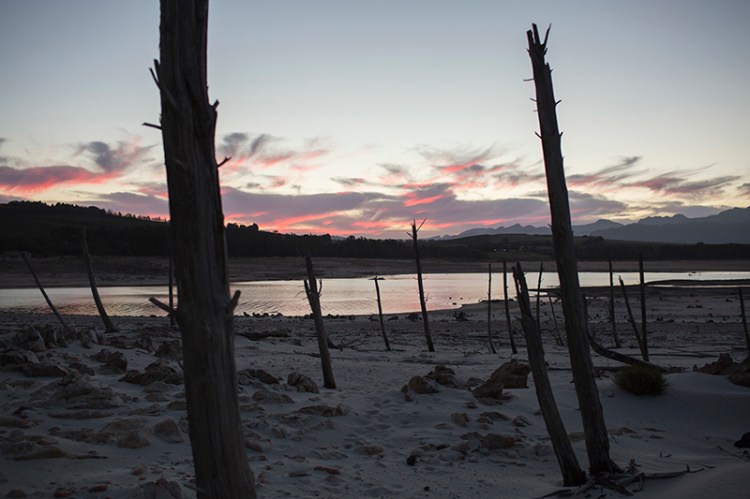CAPE TOWN, South Africa — “Day Zero” is approaching as South Africa’s showcase city of Cape Town prepares to turn off most water taps in April amid the worst drought in a century. Tensions among the four million residents are highlighting a class divide.
The top international tourist destination has both sprawling informal settlements and high-income oceanside neighborhoods. Some say poorer residents are unfairly blamed as concerns rise over wasting precious water. The military is prepared to help secure water collection points if “Day Zero” occurs.
Kirsty Carden with the Future Water Institute at the University of Cape Town said some of the water usage problems lie within the city’s leafy suburbs.
“It has been in the areas where people have gardens, they have swimming pools and they are much more profligate in the way that they use water, because they’re used to the water just being, coming out of the taps,” she said.
Some residents appear to be changing their ways, she said, but “there have been problems in the more affluent areas where people are just, ‘We’ll pay for it.”‘
About a quarter of Cape Town’s population lives in the informal settlements, where they get water from communal taps instead of individual taps at home, Carden said. “And there are always pictures of running taps and broken fixtures and ‘Look at the leakage’ and all the rest. But the reality is that those 1 million people out of a population of 4 (million) only use 4.5 percent of the water.”
In one of the crowded settlements of corrugated-metal homes, resident Vuyo Kazi washed her laundry outside as others poured used water into the street.
“Before, I was using two kettles of water to wash myself,” she said. “So now I use one kettle of water.”
Under new water restrictions that began Thursday, residents are asked to use no more than 13.2 gallons of water daily, down from the previous limit of 23 gallons. The use of city drinking water to wash vehicles, hose down paved areas, fill up private swimming pools and water gardens is illegal. Residents using too much water will be fined.
Some 70 percent of water used in Cape Town is consumed in homes, authorities say. Experts have said causes of the city’s water shortages include climate change and huge population growth. The local reliance on reservoirs, while projects such as desalination plants were largely left to the future, has been hurt by three straight years of drought.
Scientists are watching how authorities cope, as this would be the world’s first major city to go dry.
Copy the Story LinkSend questions/comments to the editors.



Success. Please wait for the page to reload. If the page does not reload within 5 seconds, please refresh the page.
Enter your email and password to access comments.
Hi, to comment on stories you must . This profile is in addition to your subscription and website login.
Already have a commenting profile? .
Invalid username/password.
Please check your email to confirm and complete your registration.
Only subscribers are eligible to post comments. Please subscribe or login first for digital access. Here’s why.
Use the form below to reset your password. When you've submitted your account email, we will send an email with a reset code.